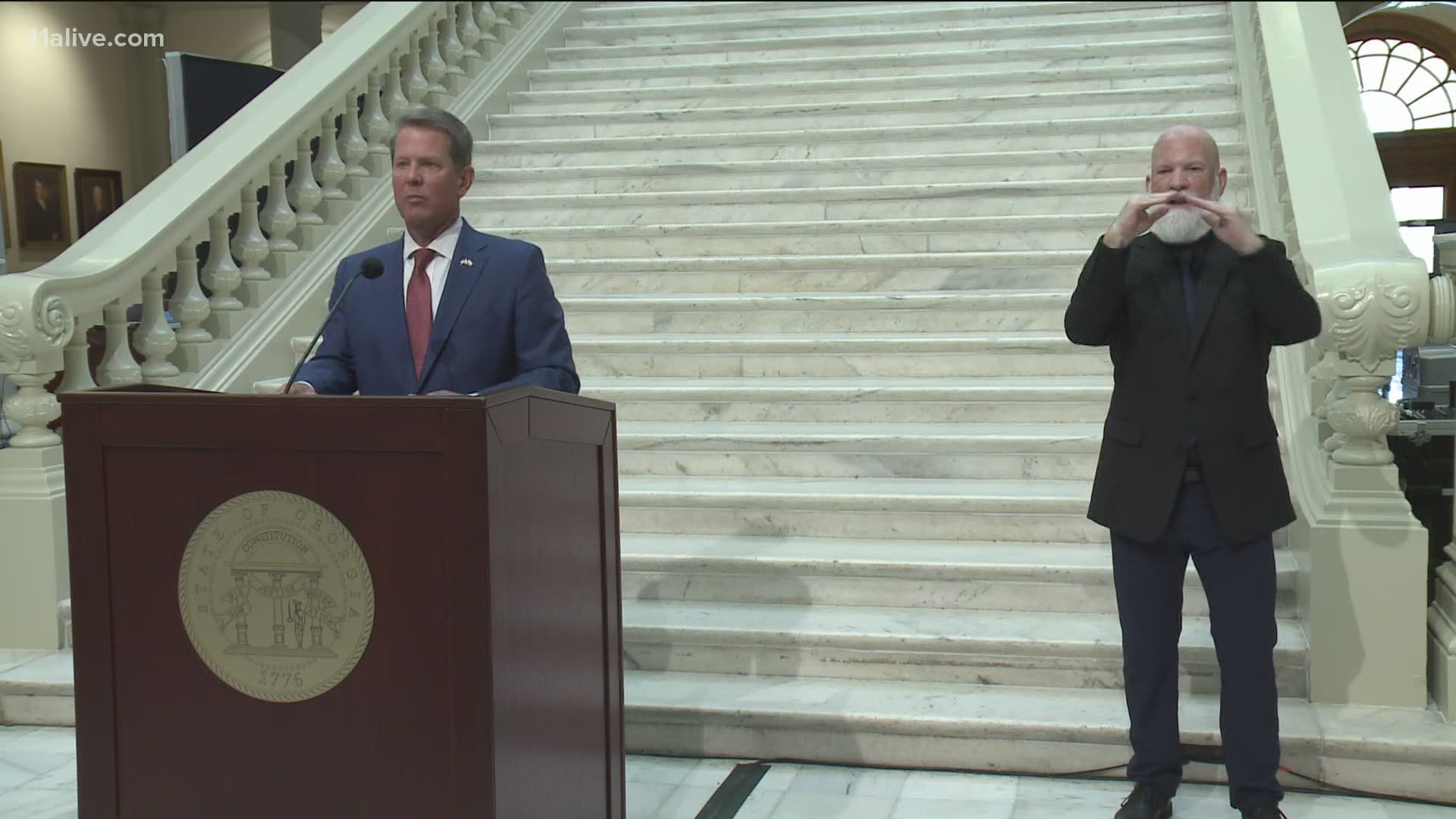ATLANTA — Gov. Brian Kemp said Friday he believes children need to be in schools and said the news media has unfairly played up the risk of going back to class, likening an outbreak of COVID-19 in schools to that of a stomach bug or the flu.
In recent days, many metro Atlanta school systems have announced they will begin the new school year in all-digital formats.
The governor said that he understood the concerns of parents and teachers, but that "there's bad outcomes of not having kids in classes," among them worsening mental health outcomes, worsening nutrition and increased instances of child abuse.
"So I am a believer that kids need to be in the classroom and we're working with the schools to do that," Kemp said.
He framed the risk children and teachers face from a COVID-19 outbreak in school as an unprecedented challenge -- but similar to challenges schools have handled before.
"I personally think once kids start going back – it's not going to be easy, there are going to be challenges, but every new school year has a challenge. We're going to have cases that break out in schools, either with personnel or perhaps students, just like you do with a stomach bug or a flu or anything else," he said. "Our schools know how to handle those situations."
CDC data show that children are at significantly less risk for complications and severe cases of COVID-19, and in Georgia, children under 18 make up a small proportion of cases.
However, children were removed from schools in March and, unlike young adults now accounting for a large share of new COVID-19 cases, have not had opportunities to gather in large numbers since. It's not clear how they might contribute to spread, both among each other and in transmission to adults, going back to daily group settings.
The CDC notes: "If children meet in groups, it can put everyone at risk. Children can pass this virus onto others who have an increased risk of severe illness from COVID-19."
The long-term implications of COVID-19 in children are also not yet well understood.
Dr. Kathleen Toomey, the state Department of Public Health commissioner, echoed Gov. Kemp's comments that there will inevitably be some cases if kids are in school, but that officials are working to “assure that schools have the tools they have to protect the students, staff, the teachers as well as the community as a whole."
“We know and fully expect that there will be some cases of COVID among students and teachers," Dr. Toomey said. "And we are doing everything we can to provide the resources needed to protect everyone in the school setting.”
The governor took exception to what he characterized as the news media unfairly portraying the risk calculation in sending kids back to school.
"When newspapers and the media only write about one side of the story and they're not writing about really the lack of risk - I mean everybody's having risk," he said. "People that have been working in grocery stories through all this, people that have been in critical infrastructure jobs go to work every day with risk, our law enforcement – protecting peaceful demonstrators, going after those that were disruptive - they face risk every day from the coronavirus. We have to be very smart about how we do this."
He said DPH director Dr. Toomey and her team had been working on recommendations that he feels will make sending kids to school safe and doable. Toomey said schools will be receiving PPE from the Georgia Emergency Management Agency and contact tracers will work with school systems.
"Dr. Toomey has been working with them on what the protocols are so you don't have to shut the whole school down (if there are cases). The risk as (CDC Director) Dr. Redfield talked about are very, very low. For those that are medically fragile, teachers or administrators, I believe there's ways the school districts can use them, either with virtual learning, course planning, other things, to just make it work," Kemp said. "We continue to work with them on that."
Asked if he would consider executive action to force school districts to adopt in-person classes if they continue to pursue all-digital formats, he said he "wouldn't really want to speak to that, haven't really thought about that," and that he felt schools were "trying to do the right thing."

